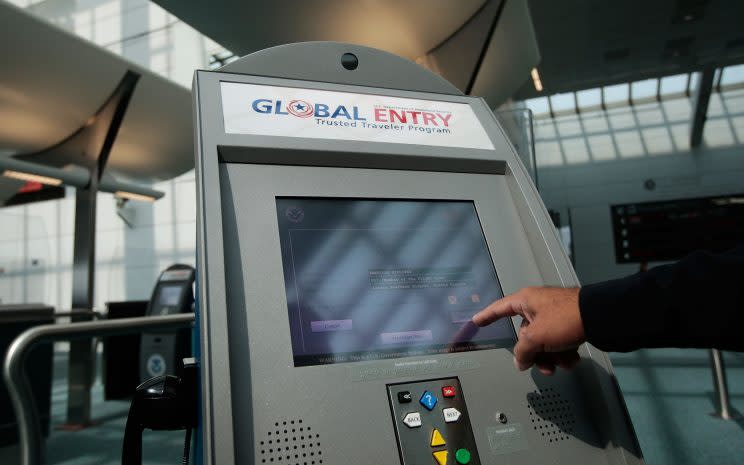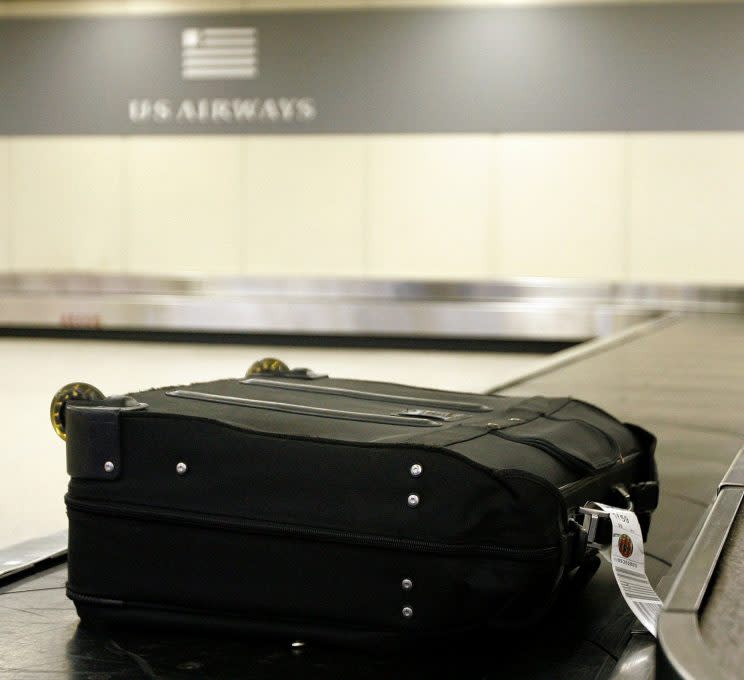Is Chase Sapphire Reserve the best travel credit card ever?
People are losing their minds over the new Chase Sapphire Reserve (JPM) credit card. Tens of thousands of people applied for the card when it was released last week, and so many consumers got approved that the bank actually ran out of the sleek metal cards, and had to send users plastic placeholders until they catch up on orders.
It’s just a credit card, so why all of the fuss?
The card’s biggest selling point: the stellar travel benefits that come with membership. Cardholders who spend $4,000 in the first three months get a sign-up bonus of 100,000 points, which is worth about $1,500 in travel (for airfare and hotel) when booked through Chase’s website. It has a 16.24%–23.24% variable APR, but the card’s biggest drawback is the annual fee of $450.
Compare that to Chase’s previous gold standard, the Chase Sapphire Preferred, which has no annual fee for the first year. After that, cardholders pay $95 a year. The Preferred costs less on an annual basis, but its initial travel benefits are inferior. After spending $4,000 in the first three months, cardholders only earn 50,000 bonus points, or about $625 in travel when booked on Chase.
Note: If you currently have the Chase Sapphire Preferred, but would prefer to use the Reserve card, it doesn’t make sense to pay two annual fees. Consider downgrading your Preferred card to a no-fee Chase card (like Chase Freedom) instead of closing the account, which could negatively impact your credit score.

One thing that makes the Chase Sapphire Reserve annual fee a tad easier to swallow is that it also comes with a $300 annual travel credit, which is automatically added to your statement as reimbursement for travel-related purchases charged to your card. When you do the math, if you’re consistently making purchases in the travel category, that essentially takes the annual fee down to $150 a year.
Thanks to the impressive upfront travel benefits, card churners (people who sign up for multiple credits cards to earn free travel or other rewards) have been pumped about the new Reserve card. Unfortunately for them, the bank is cracking down on those playing the points game. You will not be approved for this card if you’ve opened 5 or more credit cards in the last 24 months, also known as the 5/24 rule.
Breakdown of travel benefits
Beyond the convoluted points games card churners play, everyday travelers will actually see amazing benefits if they use the Reserve card.
For starters, they get discounts on rental cars and hotels. What’s more, cardholders will earn three times the points for every $1 spent on travel and dining— including flights, cruise lines, hotels, car rentals, taxis and trains. Even more impressive is the fact that this rule applies to ride-share apps like Uber and Lyft, as well as home-sharing services like Airbnb. The Chase Sapphire Preferred card offers just twice the points for every dollar spent on travel.
Like the Sapphire Preferred, Reserve doesn’t charge a foreign transaction fee, which can save you up to 3% on every purchase made abroad.

Reserve also gives users the tools to swiftly navigate the airport. Cardholders get a statement credit of $100 every four years to reimburse them for the $100 Global Entry application. The Global Entry program screens passengers, allows them to bypass lines and helps speed re-entry to the United States after international travel. The program also includes TSA precheck, which expedites the security screening at domestic airports in the US.
The card also includes a membership to Priority Pass Select, which gives users access to more than 900 VIP airport lounges around the world. If purchased on its own, the standard Priority Pass Select membership costs $99 a year, and gives travelers access to free wi-fi, food, drinks and comfortable seating.
What about all the points?
Travelers have two options for how to spend the points they accrue. If travel (airfare, hotels, car rentals) is redeemed through Chase Ultimate Rewards, points are worth 50% more. For those opting to use their points to book travel through another site, Chase will facilitate a 1:1 point transfer. This means 1,000 Chase Ultimate Rewards points equal 1,000 partner miles with partners like United, British Airways and Marriott.
But wait….there’s more!
Many people buy travel insurance before a trip to cover their bases should the unexpected happen. Well, this card’s got you covered.

If your trip gets canceled or cut short by weather or sickness, you can get reimbursed for pre-paid and non-refundable travel expenses up to $10,000. If your flight isn’t canceled, but the airline is delayed more than six hours and requires an overnight stay, the card will cover unreimbursed expenses like meals and lodging, up to $500 per ticket. Similarly, if your baggage is delayed for more than six hours, you’ll get reimbursed for essential purchases (clothes, toiletries) up to $100 a day for five days. Consumers must book with Chase Sapphire Reserve for these benefits to apply.
The card also addresses travel emergency assistance, travel accident insurance and roadside assistance.
Final verdict
We can see why people are excited about this card — the travel benefits are out of this world. With that said, we’ll warn against the steep annual fee. During the first year, the sign-up bonus eases the pain of paying the $450, but as you head into the second year, the only thing you have to look forward to is a $300 travel credit if you spent $300 on travel.
For those travelers who use the airport lounge access, global entry, TSA precheck, travel discounts and reimbursements during flight or travel disruptions, this card will pay for itself. But if you’re not they type who takes full advantage of your credit card rewards, you might as well pass and use that $450 to buy yourself a plane ticket home for the holidays.
Brittany is a writer at Yahoo Finance.
Read more:
Low on cash? Now there is layaway for airline tickets
This woman retired at 33 and is traveling the world without going broke
They quit their jobs to visit all 59 National Parks in one year

